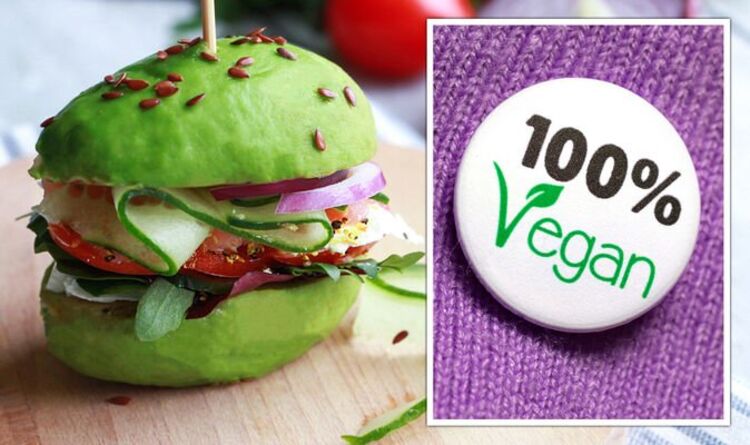Weight loss: Why going vegan might not be the best solution to shed the pounds
Bill Turnbull discusses his weight loss after switch to vegan diet
We use your sign-up to provide content in ways you’ve consented to and to improve our understanding of you. This may include adverts from us and 3rd parties based on our understanding. You can unsubscribe at any time. More info
The number of vegans in the UK quadrupled between 2014 and 2019. Amongst other claims, a vegan diet has been touted as a surefire way to lose weight – but is that the whole truth? Not always, as an expert dietitian explains.
Celebrities including supermodel Gisele Bundchen and superhero actor Benedict Cumberbatch credit their A-list physique to a vegan diet.
But do you have to go plant-based to shift the pounds? Not necessarily – in fact some vegans even gain weight after switching to a plant-based diet.
This doesn’t mean a plant-based diet is unhealthy – quite the opposite – but some people can struggle to lose weight after going plant-based if they don’t think enough about eating a balanced diet, and looking at their overall calorie intake.
Here to help explain the upsides and downsides of a vegan diet is Jenaed Brodell, expert nutritionist from Nutrition&Co.


Does going vegan help you lose weight?
A vegan diet is one where you eat no animal products, so fish, meat and dairy are out of the question.
‘Plant-based diet’ is another way of describing a vegan diet: while vegan implies an ethical position about refusing to have animal products (and by extension, wearing leather or anything else involving consuming things made from animals), plant-based just means you don’t eat animal or dairy products.
Some people will drop a few pounds after switching to a plant-based diet, but it isn’t the only way to lose weight, and certainly won’t suit you long-term if you are going to really miss your meat and fish.

Jenaed said: “Plant-based diets can help you lose weight and keep it off, because they are packed with fibre, which helps fill you up, without adding extra calories.
“It also helps keep your blood sugar in check, due to all the fibre in vegetables, fruit, legumes, and whole grains.
“This helps your body burn fuel steadily rather than cause insulin to spike, which leads to storing calories as fat.”
With any diet, a focus on whole and natural foods as well as plenty of fruits and vegetables will be recommended for the reasons Jenaed explains.
If you are planning on going vegan with weight loss as your goal, you may need to keep an eye on how much carbohydrates you are eating, and how much protein.
Many carbohydrates tend to be ‘accidentally vegan’, such as pasta, bread, rice and potatoes.
These foods keep you full and are a delicious source of energy in moderation, but if you aren’t eating enough protein and are over-compensating with extra portions of pasta (for example), you may find yourself gaining weight.
DON’T MISS:
How often do you shower? You could be weakening your immune system [UPDATE]
Princess Eugenie’s recent outing shows ‘transformational’ weight loss [INSIGHT]
Jane McDonald weight loss: Singer lost 4st by cutting out 1 food group [TIPS]

Jenaed explained: “You can be vegan and still put on weight if you focus on refined and processed foods as opposed to whole foods.
“Weight gain is experienced in a calorie surplus, therefore whether you are plant-based or not, if you are eating more than your body requires and burns, you will gain weight!”
These are Jenaed’s tips – and warnings – for anyone considering going vegan
1 – Make sure you are doing it for the right reasons – for example, is it an ethical decision, or one for weight loss?
Having a greater motive can increase adherence to the dietary pattern.
2 – Only do it if you feel it’s an eating pattern you can keep up.
A plant-based diet can lead to many food restrictions and may be difficult to sustain.
3 – Transition gradually.
Don’t go from zero to a hundred – give your body some time to adjust to the changes.
4 – Ensure you are getting balanced meals at every meal.
Focus on plant-based sources of proteins, whole grain carbohydrates and unsaturated fats.
5 – Speak to a registered dietitian, if you are wanting to make the change to ensure you are eating a balanced and healthy plant-based diet and supplementing appropriately.
Vegans can risk missing out on some essential nutrients found in fish, such as vitamin B12 and omega-3 – these can be taken in the form of substitutes.
Source: Read Full Article
